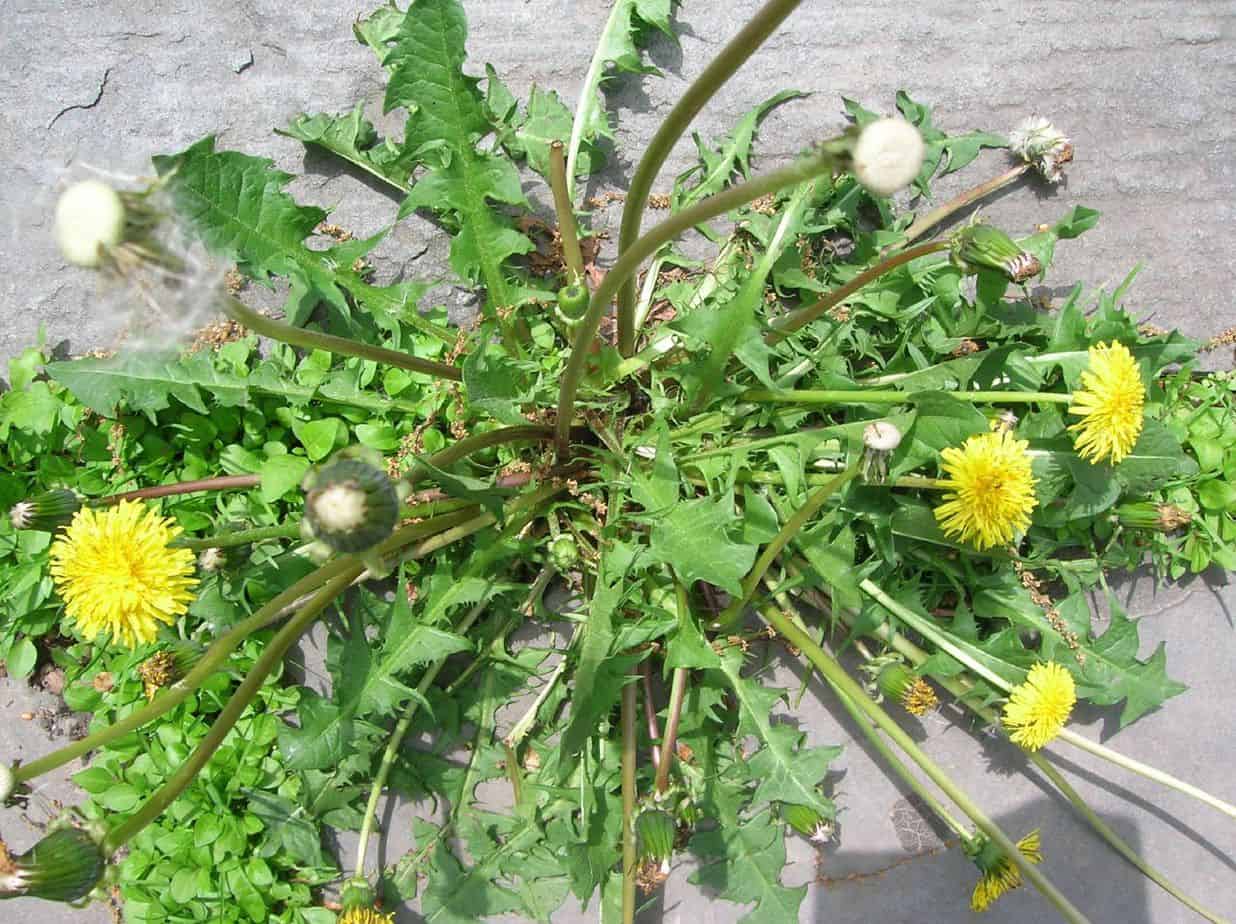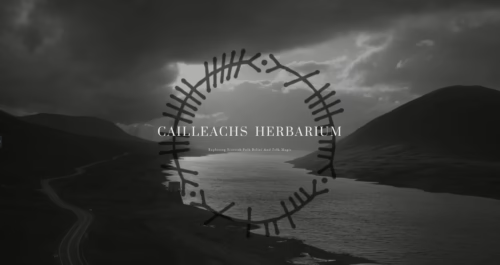The ancestral scottish diet is not all haggis, neeps and tatties! Scotland is famous for its food. However, it’s famous for its food for the wrong reasons. Scotland is renowned for its food being deep-fried, covered in fat and having very little green or nutritional value. Scotland is also famous for its whisky along with a reputation for alcoholism, over drinking and bawdy times. Yes ,it’s true, Scottish people like to celebrate and have a love for unhealthy eating but it wasn’t and isn’t always this way. The Gaelic proverb says, “Lean gu dlùth ri cliù do shinnsre,” — “Follow closely to your ancestors.” sums it up.
The idea of a sufficient and healthy Scotland has been captured beautifully by of F Miriam Macneill in her book the Scots Kitchen:
“In olden times, when the population was small and sparse—by the beginning of the sixteenth century it did not exceed half a million—the means of sustenance were on the whole plentiful. The moors and forests abounded with game; elsewhere ‘herds of kye nocht tame’ with flesh ‘of a marvellous sweetness, of a wonderful tenderness, and excellent delicateness of taste’ ranged the hills. Rivers, lochs, and seas teemed with fish. Sheep were valued mainly for their wool, cows for their milk. Butter and cheese were in use in the earliest times and the oat and barley crops have always provided the staple bread.” [1]
She conjures ideas of the self-sufficient homestead and the skills our ancestors had to prepare amazing food from available local foods: oats as chief cereal grain; root vegetables such as turnips and potatoes; leeks, cabbage and kale supplemented by wild vegetables like nettles, sorrel and garlic; butter, cheese with dairy products; fish, shellfish and seaweed; meat and game; and many varieties of wild berries and “herbal “plants in summer.
Plant use is an interesting one. In the lexis of Gaelic, any plant with a use was termed “Lus”. Even vegetables. People didn’t differentiate between a plant to eat and herbs used medicinally as we do today. They were both called Lus. Intriguingly the Gaelic for drinking, lusadh is derived from the Lus, a herb or plant. Boece says the old scots were moderate drinkers using chiefly infusions of thyme, mint and anise. Famously the Celtiberian tribe had a drink with a composition of apparently over 100 different plants.
There are many recorded instances of the good Scottish diet. In fact, Scottish people were renowned for their good health unlike today. John Froissart a fourteenth century chronicler wrote this about the Scots:-
“They neither care for pots or pans, for they boil beasts in their own skins. They are ever sure to find plenty of beasts in the country that they pass through. Therefore they carry with them no other purveyance, but on their horse: between the saddle and the pannel, they place a broad plate of metal, and behind the saddle, they will have a little sack full of oatmeal, to the intent that when they have eaten of the sodden flesh, then they lay this plate on the fire, and moisten a little of the oatmeal: and when the plate is hot, they cast some of the thin paste thereon, and so make a little cake in manner of a crak’nel, or biscuit, and that they eat to comfort their stomachs. Wherefore it is no great wonder that they make greater journies than other people do.”
Once, the Highlanders of Scotland were a group of people noted for their incredible strength, size, health, endurance, vitality, and prowess in battle. The northern Highlanders, who also were marauders, ate a lot of meat, and often ate it raw according to some sources. However the idea they “preferred it dripping with blood because it was then ‘mair sappie’ and nourishing” appears to have been defective. “For though they did frequently eat beef and venison raw their custom was to prepare it by squeezing the slices dry between wooden battens”. [2] This is reminiscent of the idea of jerky we have today.
Historically Scotland has had many influences in its cooking. We have the arrival of the Vikings around the 8th century to maybe thank for the introduction of the now world renowned Aberdeen Angus beef, and the preservations methods of salting and smoking. The arrival of the French and the Dutch switched things up again.
Things hit a turn for the worse for Scottish traditional diets. The 17th century was categorised with wars with the English, civil and religious infighting and large scale famine which was slowly improved with the introduction of better farming techniques in the following 18th century. As Edward Burt said in the 1750’s “‘Milk-meats and oatmeal, several ways prepared, and kail and roots dressed in several manners, is the constant diet of the poor people…with this kind of food they enjoy a better state of health than their southern neighbours” things were on the up.
The 16th century introduction of the potato caused fatal consequences when in the 19th Century the Highland Potato Famine hit which caused the Europe-wide potato blight. Many folk died of starvation. 1.7 millions Scottish folk were compelled to leave their homeland to seek a better life in the USA, Canada or Australia. Some landowners forced their tenants on ships and transported them so they had no choice but to start over. This was another spate of the eviction of the Gaels already begun by the close of the commons, the end of farming and an introduction of sheep farming. This devastated the landscape of Scotland and destroyed much of Gaelic culture.
More damage was done to our diets as we left the world war. Many of the traditional ways of preparing food we lost as the invention of convenience food in the 1950s and refrigeration. The addition of sugars took over as the mainstay diet. However, in the 1970’s-80’s when more grinding poverty impacted Scotland naturally the diet suffered as well. Food issues along with other environmental, social and economic effects are the reasons or roots to the health inequality of Scotland’s population. There is no surprise that Glasgow has one of the largest rates of poverty in Europe and one on the most unhealthy diets.
If you look at the eating habits of today compared to those of our even close ancestors a real difference is clear. However, our ancestors worked through and survived poverty many a time. As we have seen they had a more nourishing diet than those down south and what we might even have today. The skills to be able to prepare rich wholesome food have been lost replaced with sugary convenience and pre-packaged food.
Living below the poverty line for most of my young adult life, working with other families in dire situations, running cooking groups for families in poverty and those with disabled children I know simple cooking skills, let alone more traditional skills, are being lost ( there were folk who had never even fried an onion). I had to relearn the how to’s myself with no one to guide me and it was a struggle. Foraging nettles in spring time as the only green plant I might have been able to get my hands after a winter surviving on potatoes and beans had me learning through necessity. Reflecting back on this time, I wonder if there’s a way to re-explore some of the traditional food cooking techniques, recipes and ideas provided by the likes of F. McNeill. Might they help fill the skill gap of a new generation and hold an answer for those who may be in poverty to eat better?
The ability to cook hearty kale or nettle soups, rich meat or bone stocks, wholesome nourishing foods on a budget is a step in the right direction to better health. It also can be done on a budget. Foraging for ingredients – the cost is monetarily free but time intensive and requires skills of identification. However, with some education and experience we can find a number of food stuffs required to make a big difference to the diet. Butchers give away marrow and other bones they don’t need, or at the most sell them very cheaply which allows us to create nutritious stock for next to nothing we can add to soups and stews.
I am really interested in how we shift our diets toward health and intend to write more about traditional cooking and recipes on this site. However, it needs to be said foraging is a way of life for a lot of people in poverty. Not just something “to do“ that’s trendy and for the middle classes to feel like they are getting “back to the earth” or to gather these “rare” ingredients for restaurants to charge £15 a dish. Others charge extortionate amounts of money for people to come along and learn skills our ancestors had but we have lost due from lack of tradition passed down from elders or communities. I ask is this fair?
Just like in the area of folk magic. There are £1000 retreats in far flung places in Ireland to help you rediscover your “wild woman nature”. I’m guessing this is the wild woman nature of the middle classes and maybe not accessible for those wild woman who may have a disability. We have a £200 a weekend charges for people to learn herbalism. Something that should be people’s medicine. There are companies making Pilgrimages to our fair island from other places charging extortionate amounts of money. Telling people so-called secrets nothing more than made up ego promoting psychobabble with no basis in true community or culture of Scotland or Ireland and exploits peoples genuine desire for connection to their ancestry. I think this is an outrage. At its worse this is profiteering from the exploitation of well meaning naïvety and commodification of a traditional way of life. At its best it’s just too expensive for everyone to attend and creates privilege.
It would be great if people stopped flagrantly profiteering of an indigenous culture with roots (perhaps) dating back to the Mesolithic [3]. We do need to survive though. Money is inevitable. At the very least people who are attending these events need to ask questions of the organisers – Where does the money go? Are there free places for those who can’t afford it? How does this benefit the community they are holding it in? How accessible is it for disabled people? Better yet try to avoid these so called “pilgrimages” all together and don’t get caught up in the hype. Let’s make things accessible for people who need these skills — not just the privileged few. It would be great if people could introduce sliding scales or free places to those who can’t afford to attend. Involve people from the real community, with real skills and understanding of a way of life, and not self promoting charlatans using it for more nefarious reason.
I know I sound cynical about this but as we move further into austerity and poverty, culture and tradition become even more important. The skills of our ancestors, like foraging and herbal medicine and folk ways are needed activities, not a leisure pursuit. Foraging is becoming more and more the norm for those who find themselves written into the margins of our society. People’s food autonomy has been replaced by a reliance on food banks and other initiatives. Herbal medicine is keeping refugees alive when they can’t access allopathic medicine as they have no status in our country and no recourse to public funds. It’s a travesty of huge proportions.
Reclaim your ancestral scottish diet, be like the weeds
Being indigenous to a place means we have a natural tendency toward a similar diet of those who have come before. Reclaiming traditional recipes and ancestral traditions brings us closer to their way of life and better nutrition. Not only that, some of these skills are now held by gate keepers. We need them to be so common that people can no longer charge far too much for people to learn but are passed down through communities, families as common “vulgar” knowledge.
If we look at the plants folk used for food, it’s mostly the feral plants. The plant thugs reclaiming abandoned land. It’s those plants some might call vulgar weeds. It’s these plants who have followed humans from rural to urban places. The chick weed, plantain, yarrow, nettle, sorrel, dandelion, wild mustards, sweet cicely, hogweeds and tenacious wild berries. The plants some might remove are the ones we most need to reintroduce to our way of life and our diets. These are the plants we need as allies.
What these plants have in common is tenacity. Just like the folk of Scotland. They are ignored too often just like those who find themselves in poverty. Or removed being perceived as pests. Just like the homeless from our streets. Outside of the tended gardens these plants thrive in the margins. They are foods for the people cast to the wayside. So let’s embrace the way of the waysider or ditch ‘witch’. Embrace what others might view as the vulgar nature of “unwashed” food with dirt still clinging to its roots. Be as vulgar as you like, those that judge you don’t need your concern.
Reclaiming our ancestral scottish diet is a radical act. It helps address some of the root causes of our health issues. Taking control of these skills helps to reclaim our health in a world beset by challenges to live a happy healthy life. An approach to diet in this way brings us closer to the land as we look for wild ingredients, allows us to follow in the steps of our ancestry. We are people in a community, a society with potential links to a indigeneity (recently argued) going back to the Mesolithic period [3]. It’s our right, our traditions, our way of life to explore the wisdom of those who came before us.
Let’s ignite interest in way of life all but wiped out by corporations, politics, profiteering and economics.
Let’s reclaim some of our autonomy – our ancestral scottish diet, perhaps some of our indigeneity on the way – step away from overpriced cheaply produced chemical laden innutritious standard diet. Question and expose those selling our community as a commodity or part of a secret tradition. Lets move toward something more healthy and helpful.
“Lean gu dlùth ri cliù do shinnsre,” says the Gaelic proverb: “Follow closely to your ancestors.”
References
[1] MacNeill, FM. () The Scots Kitchen
[2] The Scots Observer, Vol 3, 1890.
[3]I know this is a potentially controversial point but more and more evidence is coming through the academy suggesting this may be the case – check out Barry Cunliffe: Who Were the Celts? For more info.





17 comments
i enjoyed this post—i am pretty passionate about cooking as a life skill that ought to be in every person’s tool-kit, and so few people do much cooking now. they are, as you observe, dependent upon a food system that exists for profit—not for health, or accessibility, or justice, or sustainability. learning about the food ways of our ancestors seems very valuable to me, and putting the ability to make good, nourishing food for not much money back into everyone’s hands seems smart and fair. (and wonderfully subversive!) i’ve read that some communities in canada have been edging toward bringing back the idea of the commons, by designating certain civic properties as community resource areas; they are often green spaces which allow some community gardening and also encourage wild-crafting of local native plants for food and medicine. it would be beautiful to see this kind of thing spread, perhaps with volunteers to educate people on what to pick/grow and how to prepare it…
What a fantastic idea to bring back the commons. I look out my window and watch new housing destroying the fringes of a community orchard planted many years ago lying forgotten and unused these days. Mind you today its covered in 4 feet of snow. We are lucky in Scotland that we have right of access and the foraging rules are ok as long as you rant digging the roots of pants from private land. Then again i don’t think they’d mind if you asked to dig up there weeds :). Personal autonomy in health is really important to me and there are some great organisations in Scotland helping people doing just this. Its grat to see we just need more of it. Are you from Canada yourself?
i am from the east coast of the united states, maryland to be precise. i was taught the plants of the area by my grandmother and by my own explorations as a small child. we’ve no foraging rights such as you describe; i would be liable for trespass and worse if i were to go into someone else’s property and cut plants or pick anything…sigh.
Thats such a shame you don’t have the right to roam … even scarier that people are super protective over their territory :(
Scott in parts of the US foraging is much easier. Here in the Inland Northwest (Idaho Panhandle, Eastern Washington, Montana) it’s much easier. Forest and State owned lands are a treasure trove for foraging. Berries, mushrooms, plums, yarrow, cherries, deer, elk, bear, trout, etc. You just have to know where to look.
That’s good to know ! Thanks x
Great piece of writing – and I agree wholeheartedly! I am actually moving to Scotland next year – up north, near Inverness because this is the kind of activity I want to be involved in. Would love to meet and/or chat with you if possible as I embark on this adventure!
Inverness is a great place to live but be prepared for the snow! Happy to chat but there is a network of people from the Radical Herbal Network who love to discuss these things and more. You can find out more at http://radicalherbalscotland.co.uk. Where are you moving from? Good luck with your move!
Hi I really enjoyed this article and am beginning to listen to my ancestors re: diet, here in Australia. Thank you. Thank you.
Wonderful article. With years of interest in food and health, I now try to eat close to my Scottish ancestral diet and it seems that it’s the healthiest for me. I live in Canada but my people come from Stromness, Orkney and the Oban area in the Highlands. My grandfather spoke Gaelic. I long to visit my ancestral land and stay for a while.
Come for the view and stay for the food :)
I cannot thank you enough for writing this article! It expressed what I have been feeling inside for quite some time. I have Scottish heritage and I feel as though I am naturally drawn to the way the Scots used to eat. I love root vegetables. Parsnips, carrots, neeps! Simple, hearty meals that are good for brain and braun. What happened to our society and the way we eat? It is so far removed from what it used to be, and it makes me sad. When my husband comes home with a frozen pizza, I want to cry. There is a beauty in simple, wholesome, nutritious meals. It’s uncomplicated. I often search for recipes online…how to make bannock (which is quite easy), amongst other traditional Scottish meals. I live in Ontario Canada so we do have influences from all around the world, which is lovely. But I long for our older ways. Haggis is one of my favourite meals.
Might I add, I have been to Scotland, traveled the highlands, the Isle of Skye, and it is the most beautiful place I have been to.
Aww lovely!!! And thank you so much for your encouraging words very much appreciated !
great words; looking for my ancestral Scottish food; greatgrand parents arrived in US 1912;
Fascinated with this topic! The standard American diet will simply not do.
I appreciate your passion on this subject! It is so true that a lot of people have lost their heritage and ancestral knowledge. I am one of those people. I’m trying to regain it, to pass on to future generations.
In my area of eastern Canada, there are many towns and villages starting to see the value in communal gardens, in letting things grow. There is a pretty good movement of “whole and local”.
This summer, my garden will contain several Scottish varieties of vegetables :)
Thank you, and keep sharing with us!